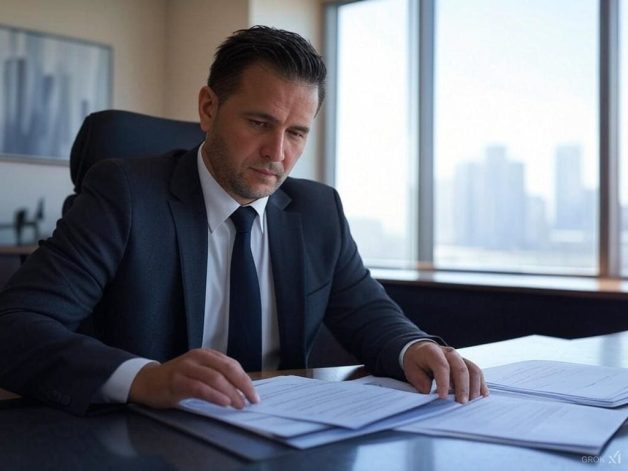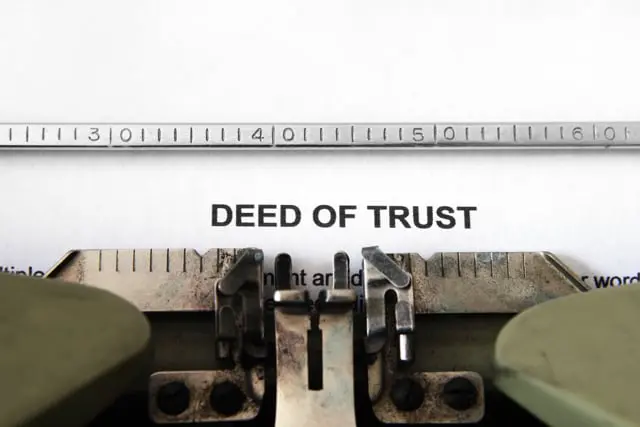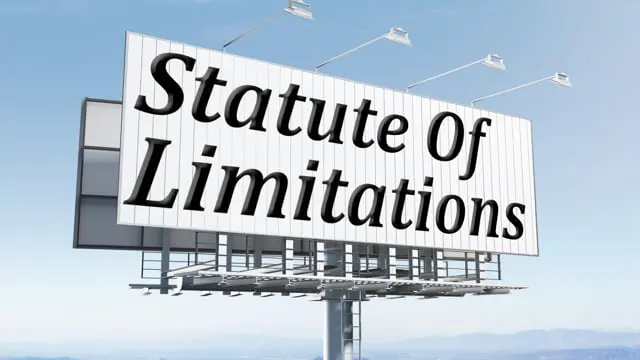In the realm of business and commerce, contract disputes are an unfortunate but common occurrence. When parties enter into a contractual agreement, they do so with the expectation that all involved will fulfill their obligations as outlined in the document. However, disagreements can arise for various reasons, ranging from misinterpretation of terms to outright breach of contract. In such situations, the expertise of a contract dispute lawyer becomes invaluable in navigating the complex legal landscape and working towards a resolution.
The role of a contract dispute lawyer extends far beyond mere interpretation of legal documents. These legal professionals are tasked with analyzing the nuances of contractual agreements, identifying potential breaches, and developing strategies to protect their clients’ interests. Whether representing plaintiffs or defendants, contract dispute lawyers must possess a deep understanding of contract law, negotiation tactics, and dispute resolution methods to effectively advocate for their clients.
One of the primary responsibilities of a contract dispute lawyer is to carefully review the terms of the agreement in question. This process involves a thorough examination of the contract’s language, paying close attention to key clauses such as those pertaining to performance obligations, payment terms, and dispute resolution procedures. By meticulously analyzing the contract, lawyers can identify any ambiguities or potential areas of contention that may have led to the dispute.
In many cases, contract disputes arise from differing interpretations of specific terms or clauses within the agreement. A skilled contract dispute lawyer will work to clarify these ambiguities, often by referencing industry standards, previous case law, or the parties’ prior conduct. This process of interpretation is crucial in determining whether a breach has occurred and, if so, the extent of that breach.
Cuando un incumplimiento de contrato is alleged, the contract dispute lawyer must assess the nature and severity of the breach. In legal terms, breaches are typically categorized as either material or minor. A material breach occurs when one party’s failure to perform substantially undermines the purpose of the contract, often justifying the non-breaching party’s decision to terminate the agreement and seek damages. Conversely, a minor breach, while still a violation of the contract terms, may not be severe enough to warrant termination but could still entitle the non-breaching party to seek compensation for any resulting damages.
El concepto de daños in contract disputes is multifaceted and requires careful consideration. Contract dispute lawyers must be adept at calculating and proving various types of damages, including compensatory damages, which aim to put the non-breaching party in the position they would have been in had the contract been fulfilled. This may include direct losses, such as the cost of finding a replacement supplier, as well as consequential damages, like lost profits resulting from the breach.
In some cases, contracts may include liquidated damages clauses, which specify a predetermined amount to be paid in the event of a breach. Contract dispute lawyers must evaluate the enforceability of such clauses, as courts may scrutinize them to ensure they represent a reasonable estimate of potential damages rather than serving as a penalty.
Beyond assessing damages, contract dispute lawyers play a crucial role in exploring various resolución de litigios options. While litigation is often viewed as the default path for resolving contract disputes, alternative methods such as negotiation, mediation, and arbitration can offer more efficient and cost-effective solutions. A skilled lawyer will evaluate the strengths and weaknesses of their client’s position to determine the most appropriate course of action.
Negociación is often the first step in resolving a contract dispute. Contract dispute lawyers engage in discussions with the opposing party or their legal representation to attempt to reach a mutually agreeable solution. This process requires a delicate balance of assertiveness and diplomacy, as lawyers strive to protect their clients’ interests while maintaining the possibility of an amicable resolution.
When direct negotiations fail to yield results, mediación may be the next logical step. In mediation, a neutral third party facilitates discussions between the disputing parties, helping them to identify common ground and work towards a resolution. Contract dispute lawyers play a vital role in preparing their clients for mediation, advising them on negotiation strategies, and ensuring that any agreements reached align with their clients’ best interests.
Arbitraje represents a more formal alternative to traditional litigation. In this process, an arbitrator or panel of arbitrators hears evidence and arguments from both sides before rendering a binding decision. Many contracts include arbitration clauses that require parties to submit disputes to this process rather than pursuing litigation. Contract dispute lawyers must be well-versed in arbitration procedures and skilled in presenting their clients’ cases effectively in this forum.
When alternative dispute resolution methods prove unsuccessful, litigation may become necessary. In such cases, contract dispute lawyers must be prepared to navigate the complexities of the court system. This involves drafting and filing pleadings, engaging in discovery processes, and presenting arguments before a judge or jury. Throughout the litigation process, lawyers must continually assess the strengths and weaknesses of their case, advising their clients on potential settlement opportunities and the risks associated with proceeding to trial.
One crucial aspect of contract dispute resolution is the interpretation of contract terms. Courts generally aim to enforce the parties’ intentions as expressed in the contract language. However, when terms are ambiguous or silent on certain issues, judges may look to extrinsic evidence to determine the parties’ intent. Contract dispute lawyers must be adept at presenting evidence of industry customs, prior dealings between the parties, and other relevant factors that may influence the court’s interpretation of the contract.
In some cases, contract disputes may involve allegations of fraude or misrepresentation. These claims can significantly complicate the legal landscape, as they may provide grounds for rescinding the contract entirely or seeking additional damages. Contract dispute lawyers must be prepared to investigate such allegations thoroughly, gathering evidence to either support or refute claims of fraudulent conduct.
The doctrine of good faith and fair dealing is an important consideration in many contract disputes. This implied covenant requires parties to act honestly and fairly in their dealings with one another, even if specific obligations are not explicitly stated in the contract. Contract dispute lawyers must be attuned to potential violations of this doctrine, as courts may consider such breaches when determining liability and damages.
In the context of international business, contract disputes can become even more complex due to differences in legal systems and cultural norms. Contract dispute lawyers handling cross-border disputes must be familiar with international commercial law, including conventions such as the United Nations Convention on Contracts for the International Sale of Goods (CISG). Additionally, they must navigate issues of jurisdiction and choice of law, which can significantly impact the outcome of a dispute.
The rise of technology and digital commerce has introduced new challenges in contract dispute resolution. Electronic contracts, smart contracts, and blockchain-based agreements present unique issues in terms of formation, execution, and enforcement. Contract dispute lawyers must stay abreast of these technological developments and their legal implications to effectively represent clients in disputes involving digital contracts.
One emerging trend in contract law is the increased focus on sostenibilidad y responsabilidad social de las empresas. Many contracts now include clauses related to environmental protection, labor standards, and ethical business practices. When disputes arise over these provisions, contract dispute lawyers must be prepared to address complex issues that may extend beyond traditional contract law principles.
Another important consideration in contract disputes is the potential for reputational damage. In today’s interconnected business world, a public legal battle can have far-reaching consequences for a company’s brand and relationships with stakeholders. Contract dispute lawyers must be mindful of these potential impacts when advising clients on dispute resolution strategies, often working in conjunction with public relations professionals to manage the broader implications of a contract dispute.
El concepto de force majeure has gained renewed attention in recent years, particularly in light of global events such as the COVID-19 pandemic. Force majeure clauses excuse a party from performing its contractual obligations due to unforeseeable circumstances beyond its control. Contract dispute lawyers must carefully analyze the language of these clauses and the specific circumstances at hand to determine whether a force majeure event has occurred and what relief, if any, a party may be entitled to as a result.
In some contract disputes, issues of intellectual property may come into play. This is particularly common in licensing agreements, technology contracts, and joint venture arrangements. Contract dispute lawyers must be prepared to address complex issues related to patents, trademarks, copyrights, and trade secrets when these matters intersect with contractual obligations.
The doctrine of preclusión promisoria can also play a role in contract disputes, particularly in cases where a formal contract may not exist or where the terms are unclear. This legal principle allows for the enforcement of a promise even in the absence of consideration if the promisee has relied on that promise to their detriment. Contract dispute lawyers must be adept at identifying situations where promissory estoppel may apply and leveraging this doctrine to protect their clients’ interests.
In the realm of employment law, contract disputes often arise in the context of non-compete agreements y confidentiality clauses. These provisions aim to protect employers’ legitimate business interests but must be carefully drafted to ensure enforceability. Contract dispute lawyers handling employment-related disputes must navigate the delicate balance between protecting employers’ interests and preserving employees’ rights to earn a livelihood.
The interpretation of indemnification clauses is another area that frequently leads to contract disputes. These provisions allocate risk between the parties by requiring one party to compensate the other for certain losses or liabilities. Contract dispute lawyers must carefully analyze the language of indemnification clauses to determine their scope and applicability in various scenarios.
In construction contracts, disputes often arise over issues such as project delays, cost overruns, and quality of workmanship. Contract dispute lawyers specializing in construction law must be familiar with industry-specific concepts such as substantial completion, change ordersy liquidated damages for delay. They must also be prepared to work with expert witnesses, such as engineers and architects, to support their clients’ positions in these technically complex disputes.
The doctrine of unconscionability can play a significant role in contract disputes, particularly in cases involving consumer contracts or agreements between parties with unequal bargaining power. This legal principle allows courts to refuse to enforce contract terms that are so one-sided as to be fundamentally unfair. Contract dispute lawyers must be prepared to argue for or against the application of this doctrine, depending on their clients’ positions.
In the context of mergers and acquisitions, contract disputes often arise over representations and warranties made during the deal process. These disputes can involve complex issues of valuation, accounting practices, and disclosure obligations. Contract dispute lawyers handling M&A-related disputes must work closely with financial experts and corporate advisors to build strong cases for their clients.
El principio de mitigation of damages is an important consideration in many contract disputes. This doctrine requires the non-breaching party to take reasonable steps to minimize their losses resulting from the breach. Contract dispute lawyers must advise their clients on appropriate mitigation strategies and be prepared to defend their clients’ actions (or inactions) in this regard during legal proceedings.
In conclusion, the role of a contract dispute lawyer is multifaceted and demanding, requiring a deep understanding of contract law principles, negotiation skills, and dispute resolution techniques. As business relationships and transactions continue to evolve in complexity, the expertise of these legal professionals becomes increasingly vital in navigating the intricate landscape of contract disputes. By employing a strategic approach that combines legal acumen with practical business considerations, contract dispute lawyers play a crucial role in protecting their clients’ interests and facilitating the resolution of complex business disagreements.
- https://www.pandadoc.com/blog/contract-dispute/
- https://davisbusinesslaw.com/breach-of-contract-solutions/
- https://www.rendigs.com/navigating-contract-disputes-key-strategies-for-resolution/
- https://www.gatekeeperhq.com/blog/contract-terminology
- https://www.swiftcurrie.com/assets/htmldocuments/Litigation%20Terminology.pdf
- https://legal.thomsonreuters.com/blog/the-principles-of-contract-law/
- https://www.concord.app/blog/contract-dispute/
- https://www.ballmorselowe.com/blog/understanding-your-rights-in-contract-disputes
- https://barprephero.com/legal-terms/contracts/
- https://www.pandadoc.com/blog/contract-terminology/








